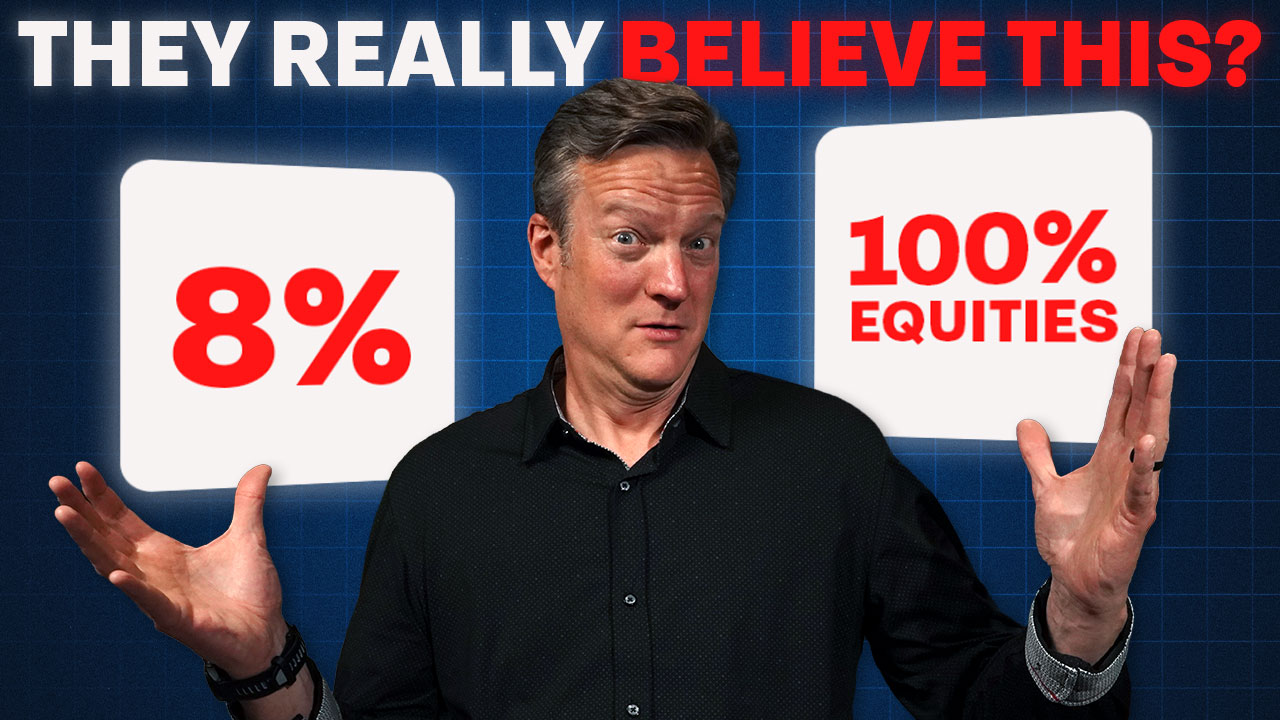If you don’t already own a home, it may seem more difficult than ever to purchase one. In less than two years, home prices, illustrated on the chart below, have increased 32.9%. As someone struggling to get into a home myself, it doesn’t feel like the market will ever slow down. If you already own a home and locked in a low interest rate, the current state of the housing market might not even be noticeable for you and your family.
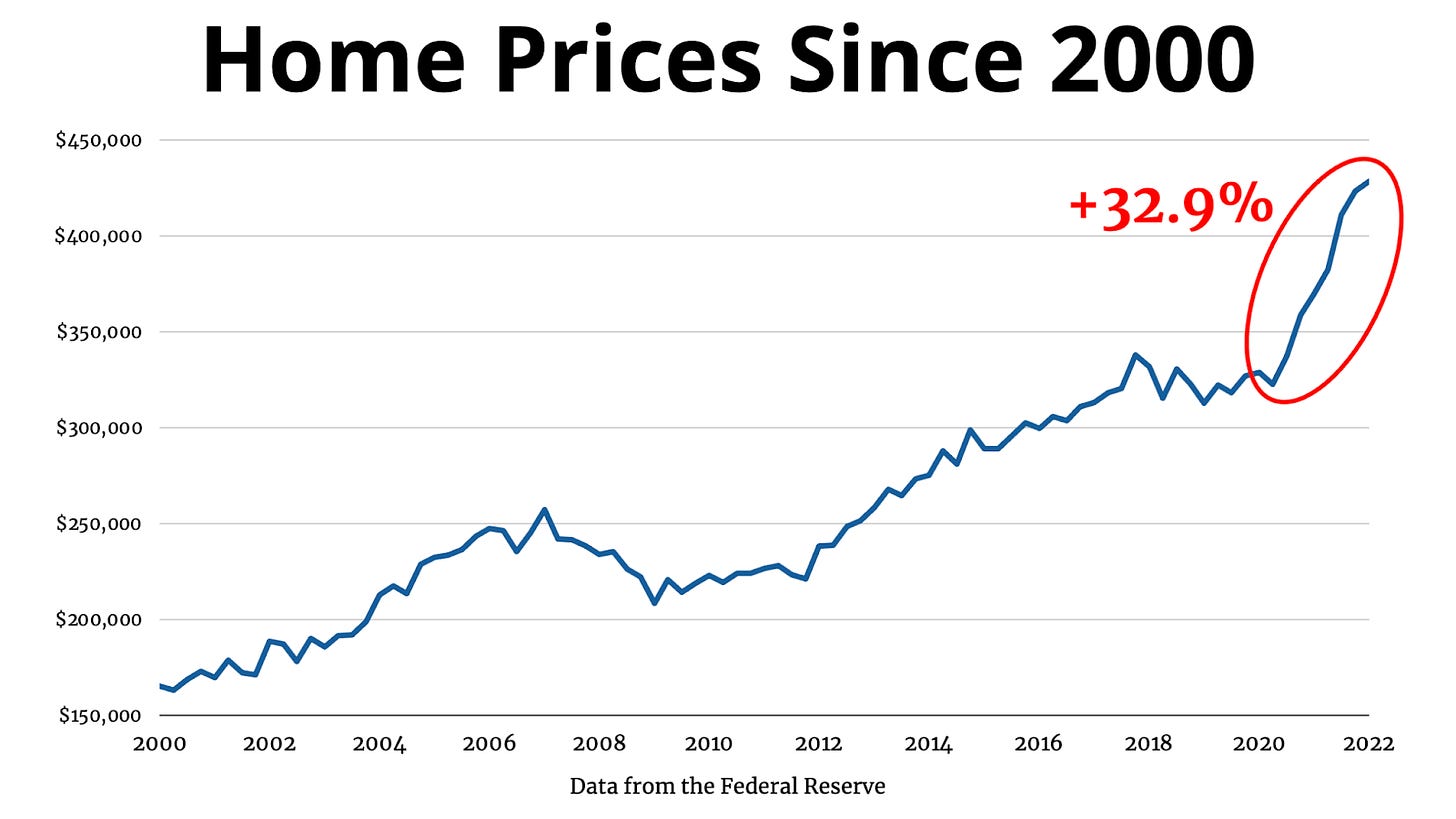
How crazy is the current housing market?
The rise of home prices in the U.S. over the last two years only tells part of the story. Prices have risen 32.9% for the median home in the country, but market conditions where you live might be much different. In some markets, housing prices are rising over 25% annually. If you live in a more rural area, housing prices might still be going up, but at a slower pace.
Mortgage rates have increased substantially in a short period of time. 30-year fixed mortgage rates have shot up to 6.13%. At the beginning of this year, less than six months ago, rates were around 3%. The true cost of housing, when adjusted for interest rates, has gone up 93.0% since the second quarter of 2020. Housing has become much more expensive for Americans; the chart below, from Lance Lambert at Fortune, shows mortgage payment to income ratio, which is currently at 34%.† Through most of 2019 and 2020, this ratio was at 19%. Whichever way you slice it, homes have become nearly twice as expensive in under two years.
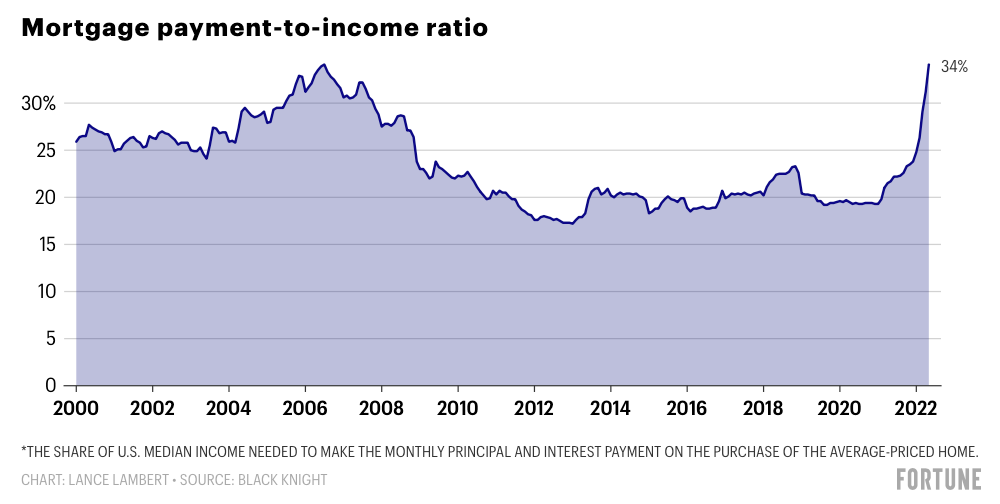
There are other byproducts of a crazy housing market besides the increase in price. The median home is only on the market for 31 days before selling; in more normal times, homes are typically on the market for 60-90 days before selling. 1 in 4 home buyers are waiving inspections, with the same number waiving appraisals. 42.4% of homes sold above asking price in February, the last month of data available, which is actually down from 56.4% sold above asking at the peak in June of 2021 (but is still elevated over the normal range of 20% to 30%).
Is supply catching up with demand?
There are some glimmers of hope in the housing market for those looking to buy, in addition to fewer homes being sold above asking price. The map below, again from Lance Lambert at Fortune, shows inventory levels rising in some of the hottest markets in the country. Note that the map only includes data for certain markets; the light gray areas are not showing no inventory change, they are just not included in the data set.
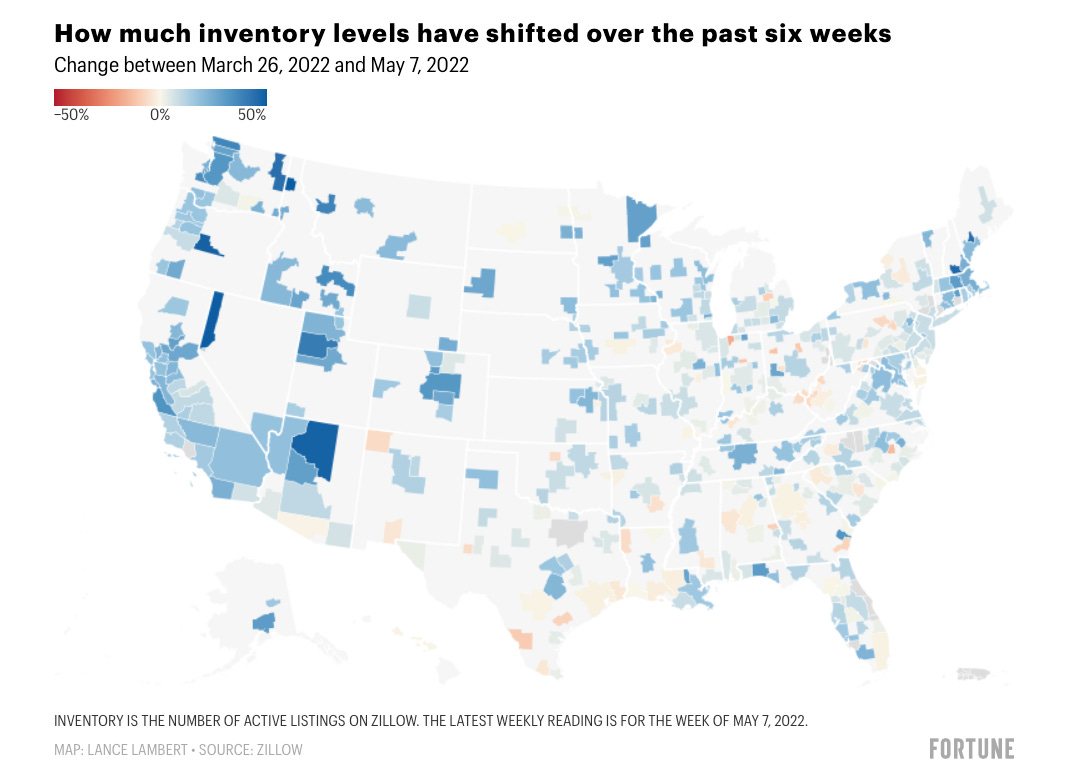
Rising interest rates will slow down demand. Americans will be, and already are, unable to afford as much home as they could last year or in 2020. Fewer potential buyers means homes will be on the market for longer or prices may need to come down. Some are beginning to warn of a housing market bubble. A senior research economist at the Federal Reserve Bank of Dallas, Enrique Martínez-García, says “This might be a housing bubble. The evidence suggests it looks like a housing bubble. A little bit like a duck. It walks like a duck, it looks like a duck, it certainly might be a duck.”
However, any so-called “bubble” in the housing market would look significantly different than the housing crash of 2008. Homeowners have locked in low fixed-rate mortgages, they are less burdened by debt, and balance sheets are healthier. The supply of new houses, in months, was also significantly higher before the 2008 crash (although that number is beginning to creep up again). Any decline in housing prices, if there is one, would be driven by a sharp drop in demand due to rising interest rates, not current homeowners getting in financial trouble.
How to buy a home in inflationary times
Nobody knows if home prices will go down. It seems unlikely and improbable that they will continue to increase at the same pace, with rising interest rates cooling off demand, but it remains to be seen if the market will slow or potentially decline. Regardless of what the housing market does from here, there are a few rules you need to keep in mind if you plan to purchase a home.
1. Be in your home for at least five years.
Given that nobody knows what the housing market will do in the short-term, you need to plan on owning your home for at least five years. If the market does drop in the short-term, you don’t want to sell your home when it is down in value or underwater due to expensive real estate transaction fees. This rule is especially important if you are a first-time home buyer putting 3% to 5% down. The housing market can take years to recover. The following chart shows how long home prices took to recover after the Great Recession. While the median sales price took six years to fully recover, some markets recovered even slower.
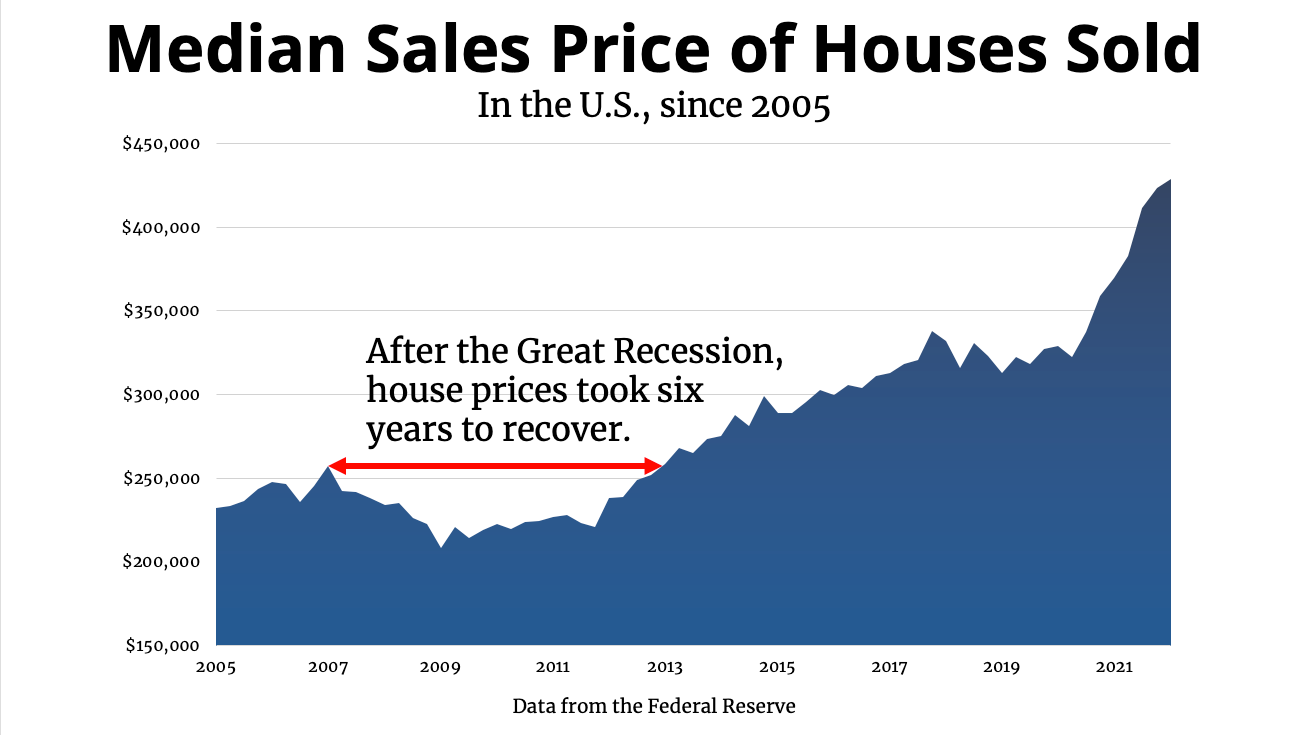
2. Due diligence is there for a reason.
Our second rule may be easier to follow now than it was last year or in the latter half of 2020. As demand cools, buyers will have an easier time making sure they get an appraisal and inspection. A home purchase is often a multiple six-figure decision or even a seven-figure decision. You need to know exactly what you are buying when spending that kind of money (and locking in a mortgage for 15 or 30 years). If you aren’t able to get a full inspection, at a minimum get a pass/fail inspection where you have the decision to walk away or buy the home as-is.
3. Know where your guardrails are.
If you’ve watched, listened to, or read any of our housing-related content, you know our rule of thumb for total spending on a home is to keep it below 25% of your gross income. We still want you to do everything you can to keep that number below 25%, but also realize that may not be possible in today’s housing environment. If you must exceed 25%, make sure you have other areas of your financial life in order. Is your income expected to increase in the next few years, growing to a place that will reduce your housing costs to 25% or less? How much slack is there in your emergency fund? How much are you currently investing for retirement? What happens if you can’t make your monthly mortgage payment?
Conditions for buying a home are currently not favorable for buyers, but conditions could be shifting. Inventory is increasing in many parts of the country, which, combined with higher interest rates, could drive down demand and increase supply. As someone currently on the outside looking in, I understand the struggle and frustration of seemingly watching the market pass you by. Whether or not you plan on buying a home this year or anytime soon, it’s important to stick to a set of guidelines to keep your finances on track.
† It is worth noting that this chart was last updated in May, when 30-year mortgage rates averaged 5.27%. With rates now higher, this number will be expected to climb, potentially past highs set in 2006.










